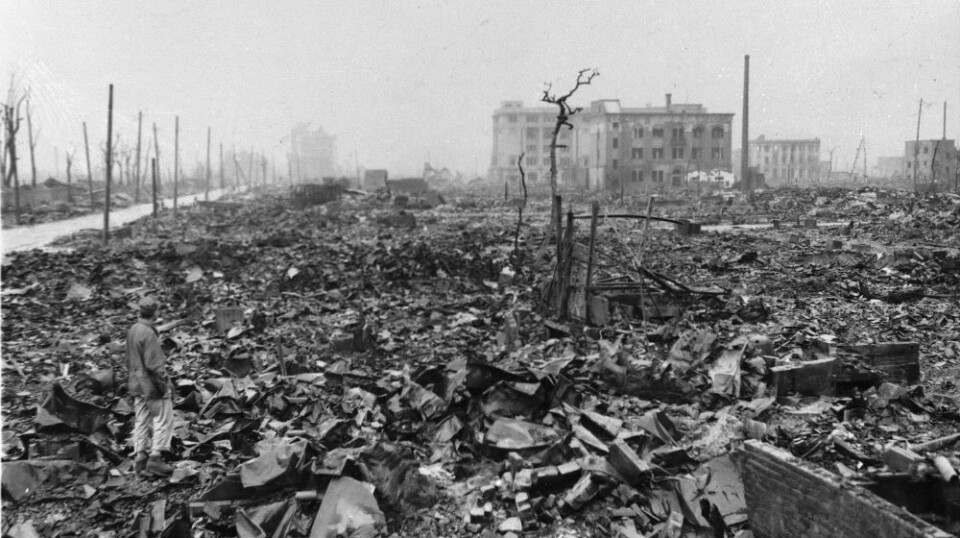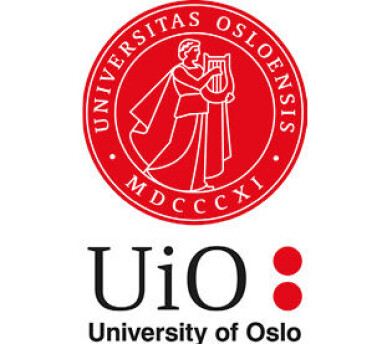THIS CONTENT IS BROUGHT TO YOU BY University of Oslo - read more

Researcher: There is an increased risk of nuclear weapons use
Several world leaders have threatened the use of nuclear weapons in recent years. This makes it especially important to have a peace prize that reminds us of the consequences of using nuclear weapons in warfare, a researcher believes.
“This year's peace prize is an interesting choice at a time when most of us in the West are focused on the war in Ukraine and the Middle East. Mobilisation against nuclear weapons has been overshadowed. Perhaps we need a strong reminder of the consequences of nuclear weapons,” says Jamie Withorne.
She researches nuclear weapons and is affiliated with the Oslo Nuclear Project at the University of Oslo.
The Nobel Peace Prize will be awarded on December 10 to survivors of the atomic bombings of Hiroshima and Nagasaki, and the organisation Nihon Hidankyo.
They are receiving the prize for their efforts toward a world without nuclear weapons and for reminding us why nuclear weapons must never be used again.
“Not in my lifetime”
Jamie Withorne does not have a positive outlook on the matter.
“The desire for a world without nuclear weapons is idealised – and unfortunately, not something I believe I will experience in my lifetime," she says.

Despite the increasing threat of nuclear weapons being used in recent years, Withorne believes it is unlikely that words will turn into actions.
Most people are well aware of how devastating the use of nuclear weapons would be, she points out.
Since the bombs fell on Japan in 1945, a taboo has existed against using nuclear weapons. This continues to restrain the world's nuclear powers.
“What I am most afraid of is that this taboo will be broken. It's difficult to imagine the environmental, civilian, and humanitarian consequences of using nuclear weapons," she says.
What we know is that the nuclear weapons we have today are ten times more powerful than the bombs dropped on Hiroshima and Nagasaki.
Withorne refers to the website NUKEMAP, where one can select nuclear bombs of various sizes and place them over, for example, Oslo.
The Norwegian capital would be obliterated by most of them.
Putin's threats
“Putin has been issuing threats about using nuclear weapons since Russia's invasion of Ukraine. He usually does not do it explicitly but makes sure to mention that Russia possesses nuclear weapons in various contexts,” says Withorne.
She emphasises that threats like these increase the risk of nuclear weapons being used.
Withorne points out that during Donald Trump's previous presidency, he also often highlighted that he was in control of the famous nuclear button.
“Trump boasted that he had a bigger nuclear button than North Korea's Kim Jong-un. But then he stopped after the two developed a closer relationship," the researcher adds.
Withorne believes that North Korea and Russia are the countries most inclined to potentially use nuclear weapons and are, therefore, the ones to watch most closely.
During the war in Ukraine, Russia has changed its nuclear doctrine and adjusted the conditions for when nuclear weapons can be used.
"It's disturbing to see that threats of nuclear weapon usage take up so much space in a conventional conflict,” she says.
Nuclear panic
As a researcher, Jamie Withorne is used to studying the risks of using nuclear and other weapons daily. However, she noticed that panic spread among the population after Russia's invasion of Ukraine.
Suddenly, everyone was concerned about the threat of nuclear weapons and their potential use. The fear also affected her.
In Ukraine, Gaza, and the Middle East, we see two nuclear powers, Russia and Israel, engaging in conventional conflict, the researcher points out.
She explains that Russia and Putin are not afraid to wave the nuclear weapons flag.
Israel and Netanyahu have never officially admitted to being a nuclear-armed state, although everyone knows they are. Nevertheless, they have indirectly acknowledged it by stating that nuclear weapons will not be used in Gaza.
Nuclear powers and agreements
The USA, UK, France, Russia, and China are the nuclear-armed states involved in the UN's Treaty on the Nonproliferation of Nuclear Weapons (NPT).
This treaty was indefinitely extended in 1995.
Israel, India, Pakistan, and North Korea are also nuclear powers but are not part of the treaty since they developed weapons after it was adopted.
Withorne has little faith that a similar treaty involving all nuclear powers could be negotiated in the future.
She notes that in recent years, there has been a shift away from arms control agreements, particularly in the USA.
"It started with the Trump administration but has continued with the Biden administration,” she says.
Researchers at the Oslo Nuclear Project have observed that the world has taken a step back regarding such agreements. Nuclear powers are now more concerned with being competitive and less interested in cooperating or negotiating with other countries.
Withorne underscores that this is a very difficult situation.
“Previously, nuclear weapons agreements could be isolated from other politics. Today, when the USA tries to involve Russia or China in matters involving nuclear weapons, we do not see a willingness to create such politically isolated agreements,” she says.
Concerned with strategic stability
In her work, Withorne has looked at underlying political mechanisms that could serve as alternatives to comprehensive agreements on nuclear weapon use.
She is focused on preventing arms races and crises, emphasising the importance of communication, dialogue, and bilateral political summits.
She hopes to contribute to better guidelines for nuclear weapons outside of specific agreements.
“I am trying to come up with new ways of thinking, ensuring we can navigate a new reality without binding agreements on nuclear weapons. The USA and China have already agreed not to include artificial intelligence in launch systems for nuclear weapons,” she says.
“That is a good example of how to handle the risk of nuclear weapons, even with low effort,” she adds.
Best and worst-case scenarios
“What do you think would be the worst-case scenario in a five-year perspective?”
“The worst-case scenario is the use of nuclear weapons. That Russia decides to use nuclear weapons in the war in Ukraine. That they conduct some sort of nuclear test, which is misinterpreted as the use of nuclear weapons. That it then escalates into a full-scale nuclear war," she says.
Withorne also fears that China migh invade Taiwan because of the precedent Russia set invading Ukraine. That North Korea continues to test or use nuclear weapons. That the USA gets a new Trump administration that says no to agreements and decides to go to war, for example, with Iran. That the USA simultaneously tries to engage Russia in a nuclear conflict.
"That would be quite bad,” she says.
“What do you think would be the best-case scenario in a five-year perspective?”
“That the war in Ukraine ends. That Russia decides that nuclear weapons arms control is good. That the USA agrees and continues with arms control. And that China does the same. That there is increased political communication and dialogue between the three major nuclear powers. And that North Korea agrees to limit their nuclear weapons in some way. That it does not escalate between India and Pakistan in Kashmir. And that the war in Gaza ends. That would be the best scenario. That would be magical,” says Withorne.

This content is paid for and presented by the University of Oslo
This content is created by the University of Oslo's communication staff, who use this platform to communicate science and share results from research with the public. The University of Oslo is one of more than 80 owners of ScienceNorway.no. Read more here.
More content from the University of Oslo:
-
Mainland Europe’s largest glacier may be halved by 2100
-
AI makes fake news more credible
-
What do our brains learn from surprises?
-
"A photograph is not automatically either true or false. It's a rhetorical device"
-
Queer opera singers: “I was too feminine, too ‘gay.’ I heard that on opera stages in both Asia and Europe”
-
Putin’s dream of the perfect family




































